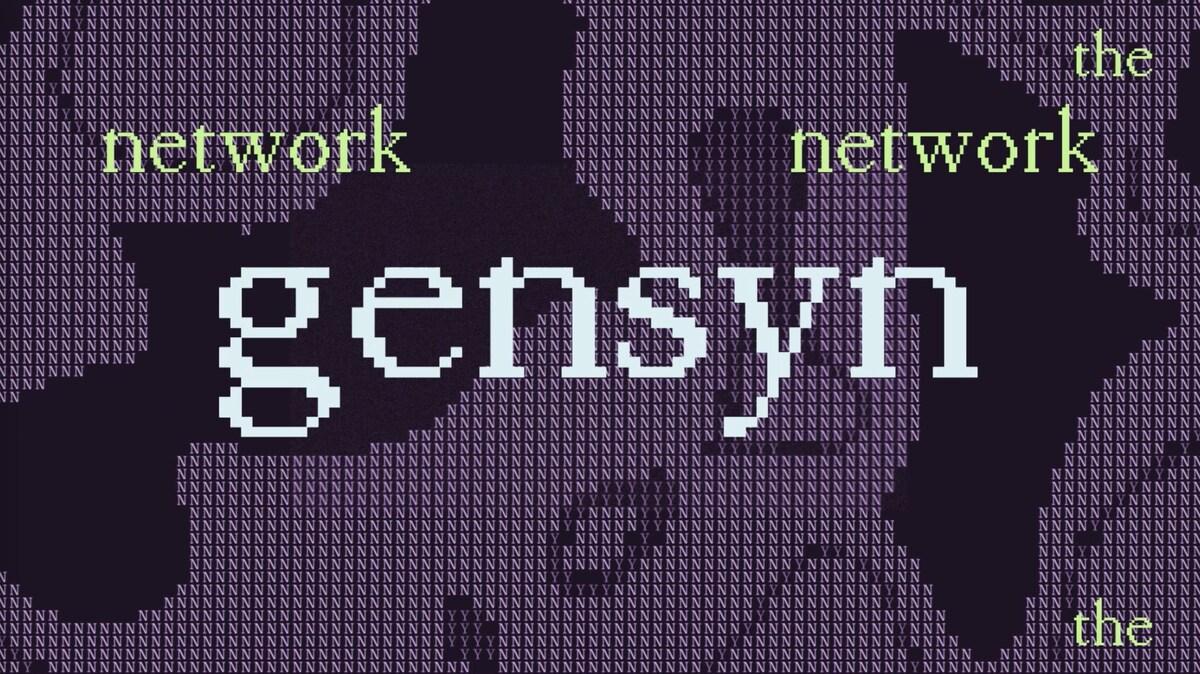Crypto Banking Chaos: Which US Banks Are Still Open For Crypto Business In 2023?
Key Points:
- The recent closures of banks with ties to the cryptocurrency market, including Silvergate Capital, SVB, and Signature Bank, have significantly changed the landscape of crypto-friendly banks in the United States.
- Several banks, such as JP Morgan, Metropolitan Bank Holding Corp., Moonstone Bank, Provident Bank, and Evolve Bank & Trust, have left the market.
- While others, such as Bank of New York Mellon, Customers Bank, Cross River Bank, and Pathward, continue to offer services to the crypto industry.
The crypto market faces a new challenge as more crypto banks steer clear due to market volatility and regulations. Our article examines the impact of recent bank closures and market turbulence caused by Silvergate Capital, SVB, and Signature Bank and how to find crypto-friendly banks in the US.
Introduction

In the previous week, Silvergate Capital declared the cessation of its operations and the final liquidation of its assets. After then, Silicon Valley Bank (SVB) announced its bankruptcy after experiencing a $42 billion run, and on March 12, Signature Bank was forced to close down by regulators.
As a consequence of this sequence of violent incidents, the price of Bitcoin plunged below $20,000 at its lowest point, while USDC experienced short-term fluctuations due to “anchoring.” The market has recovered despite introducing emergency rescue measures, but a more significant challenge has arisen.
Under the double pressure of market volatility and tightening regulations, more and more banks are choosing to steer clear of the cryptocurrency market. As a crucial channel for deposits and withdrawals, it is important to identify the current crypto-friendly banks in the United States.
History of Crypto-friendly Bank (List)
Previously, the United States was known for being a favorable environment for crypto-friendly banks. In 2020, The Block compiled a list of such banks, which included major players like JPMorgan Chase and more traditional banks such as Silvergate Capital and Signature Bank.
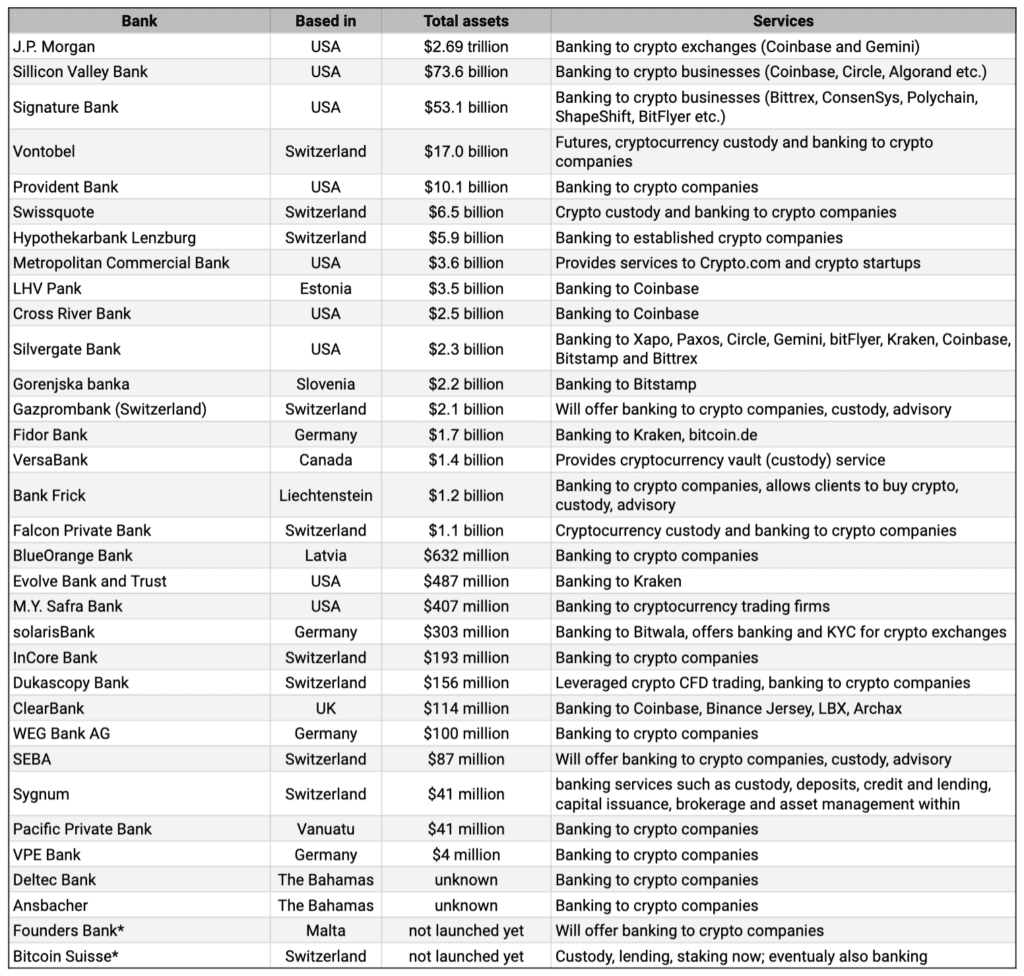
However, the recent collapse of FTX has brought significant changes. In January 2023, the Federal Reserve, the Office of the Comptroller of the Currency (OCC), and the Federal Deposit Insurance Corporation (FDIC) jointly issued a statement urging banks to refrain from engaging in crypto-related businesses and to review the compliance of their current operations strictly.
Consequently, several banks with close ties to crypto businesses, especially FTX, have withdrawn from the crypto market.
Crypto-friendly Bank Leaving
JP Morgan
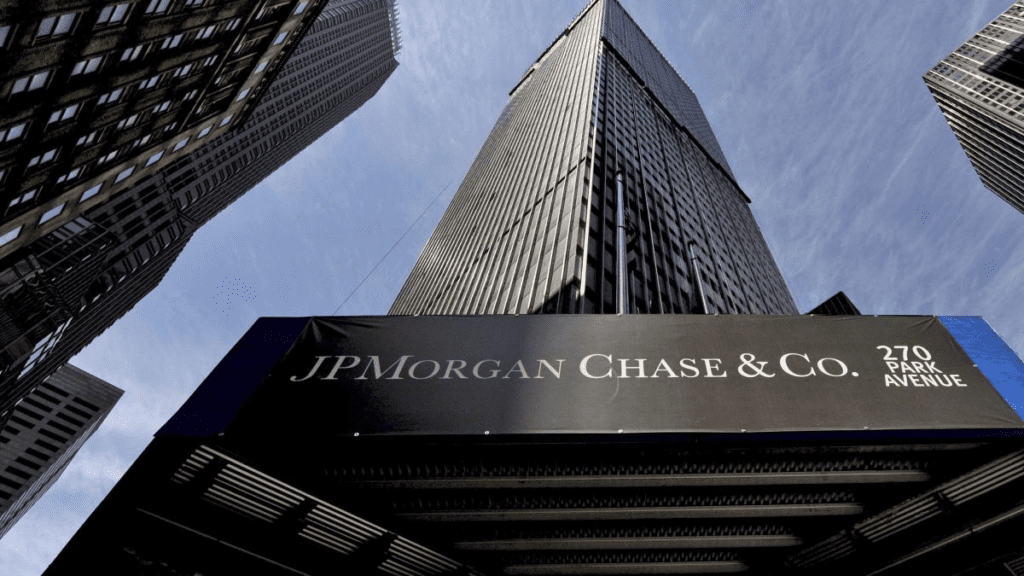
It has been actively involved in crypto, launching the Onyx system for instant transfer and settlement of assets on a permissioned distributed ledger. It has also launched Decentraland, the first bank to offer services in the Metaverse. However, in March 2023, the bank announced that it was cutting ties with cryptocurrency exchange Gemini, which Gemini denied. On the other hand, Coinbase confirmed that it would continue to work with JP Morgan.
Metropolitan Bank Holding Corp.
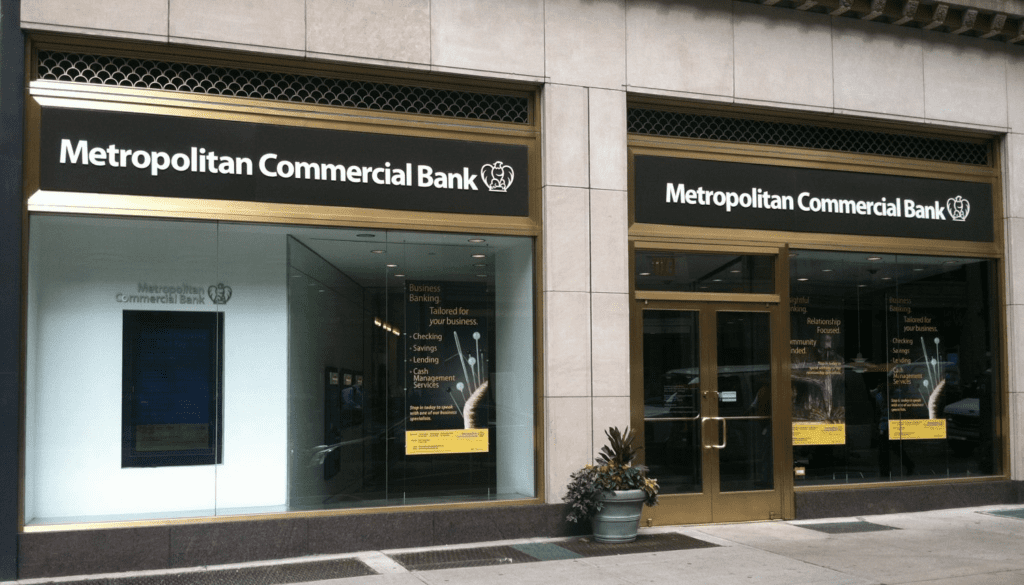
It withdrew completely from the crypto market on January 9, 2023. Although the crypto business accounted for 1.5% of its operating income and 6% of its total deposits, it decided to end its relationship with its last four crypto customers after regulatory documents were issued.
Moonstone Bank
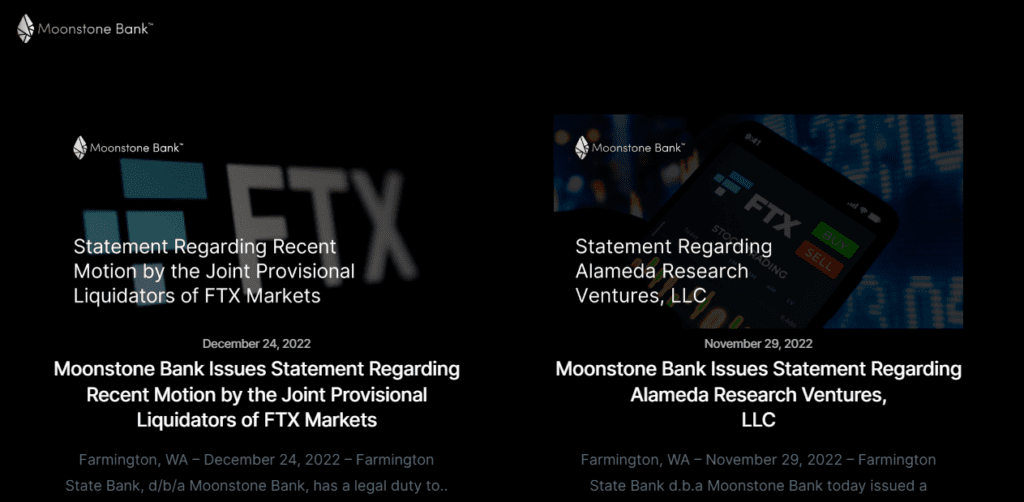
It had dozens of crypto customers, but all crypto accounts have been closed. The bank received an investment of $11.5 million from SBF’s Alameda Research in January 2022, and Bahamian liquidators discovered that Moonstone held nearly $50 million in FTX deposits in two accounts. However, the status of those accounts is currently unknown. Moonstone has now returned to its original mission as a community bank and no longer provides banking services to the crypto industry.
Provident Bank

It mainly provides services such as deposits, loans, wire transfers, ACH transfers, real-time payments, and remote deposits for crypto companies in the mining field. However, by the end of 2022, its crypto mining loan portfolio will be reduced to $41.2 million, and it will gradually withdraw from the crypto mining loan business.
Evolve Bank & Trust

It suffered due to its exposure to FTX and BlockFi. While it did not provide loan services to FTX or its affiliates and did not invest in or trade cryptocurrencies, it had issued credit cards to BlockFi’s clients.
Despite the closure of some crypto-friendly banks, several remain friendly to the crypto industry and continue evolving with it.
Crypto-friendly Banks Holding On
Bank of New York Mellon
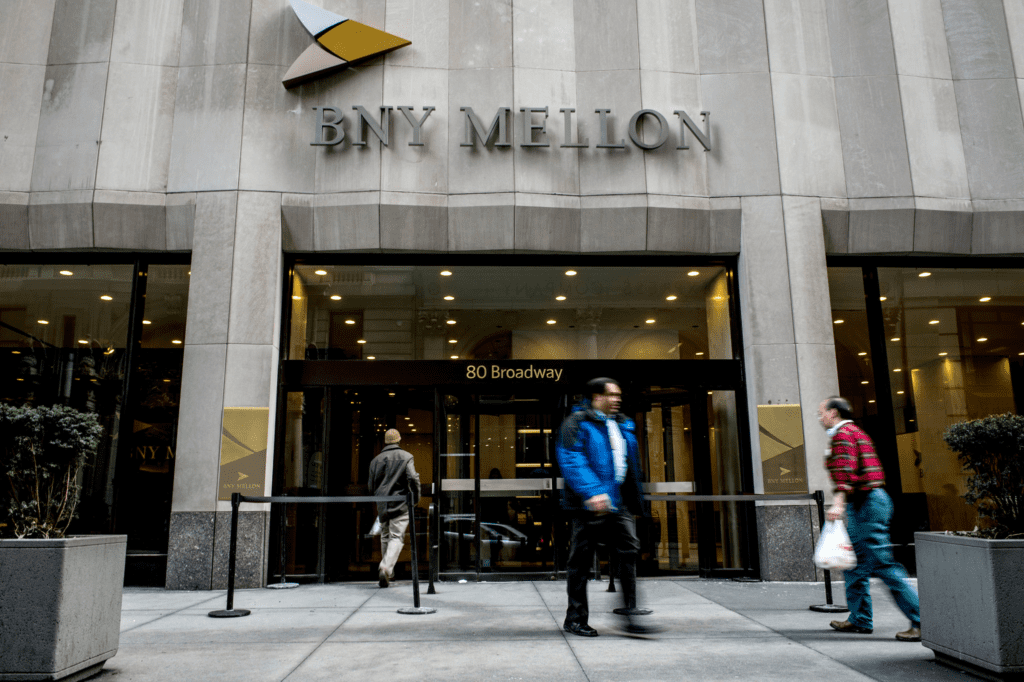
The world’s largest asset custody institution, currently holds over 43 trillion traditional assets and settles more than 2 trillion US dollars daily. It is also the exclusive settlement agent for US government bonds. In March 2022, the Bank of New York Mellon was chosen as the custodian for stablecoin USDC after Signature’s closure, and Circle will use the bank for settlement.
Customers Bank
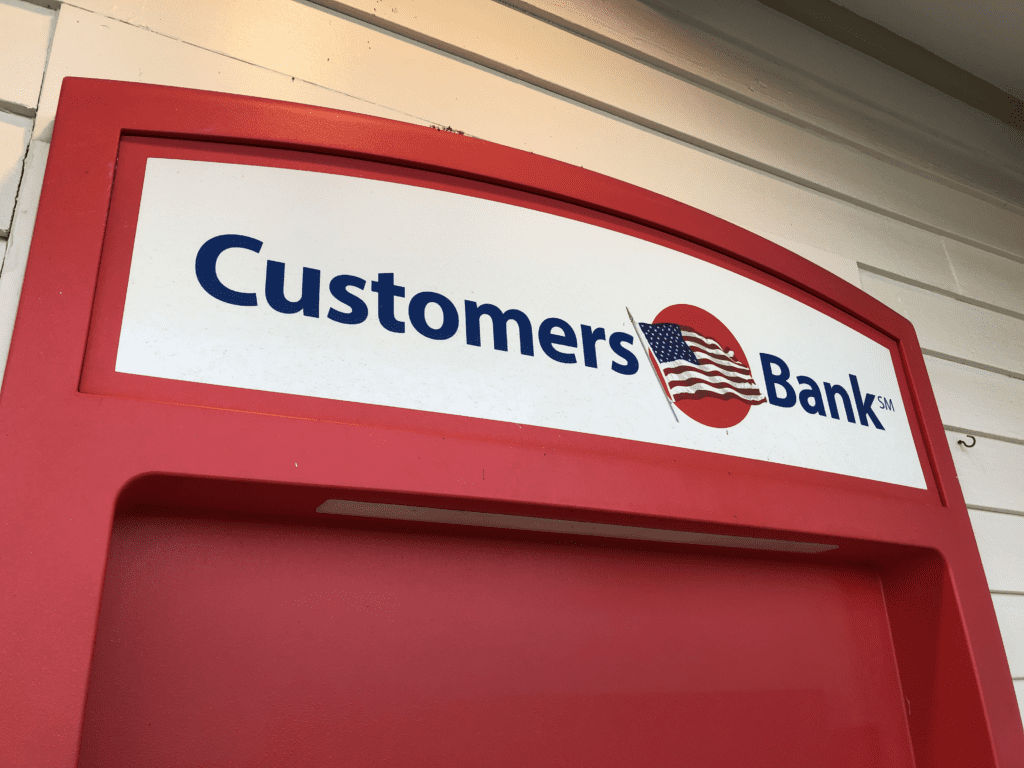
They have their own CBIT token for USD cash exchange between customers, which can be used with the TassatPay payment platform, a B2B instant transfer system based on blockchain technology. The bank’s third-quarter 2021 earnings report indicated that $1.5 billion in deposits came from cryptocurrency operations, allowing it to benefit from low-cost deposits and provide liquidity, expanding net interest margins to drive aggressive loan growth. After the FTX incident, Customers Bank clarified that it has no business dealings with FTX or any affiliated companies, nor has it provided loans to any customers in confidential industries. Circle, the USDC issuer, still has some reserves in Customers Bank after the collapse of SVB and Signature Bank.
Cross River Bank

It completed a financing round of $620 million led by a16z in April 2022, operates a BaaS (Banking as a Service) module that includes payments such as card swipes, account transfers, and real-time payments. The bank provides services such as checking accounts, savings accounts, and credit and debit cards. Coinbase and Circle are both customers of Cross River Bank, and Circle announced that the bank would provide customers with the service of minting and redeeming USDC starting March 13, 2023, after SVB.
Pathward

Similarly, it is an FDIC-registered bank that provides BaaS services and cooperates closely with Coinbase, also serving as a cooperative issuer of Coinbase Card, providing services related to credit card issuance. Pathward also provides deposit insurance services for customers, insuring deposits up to $250,000.
Indirect Access To Crypto-Friendly Banks
Apart from banks that directly offer services to cryptocurrency companies or customers, a specialized banking system also indirectly interacts with cryptocurrency companies through partnerships.
First Foundation Bank
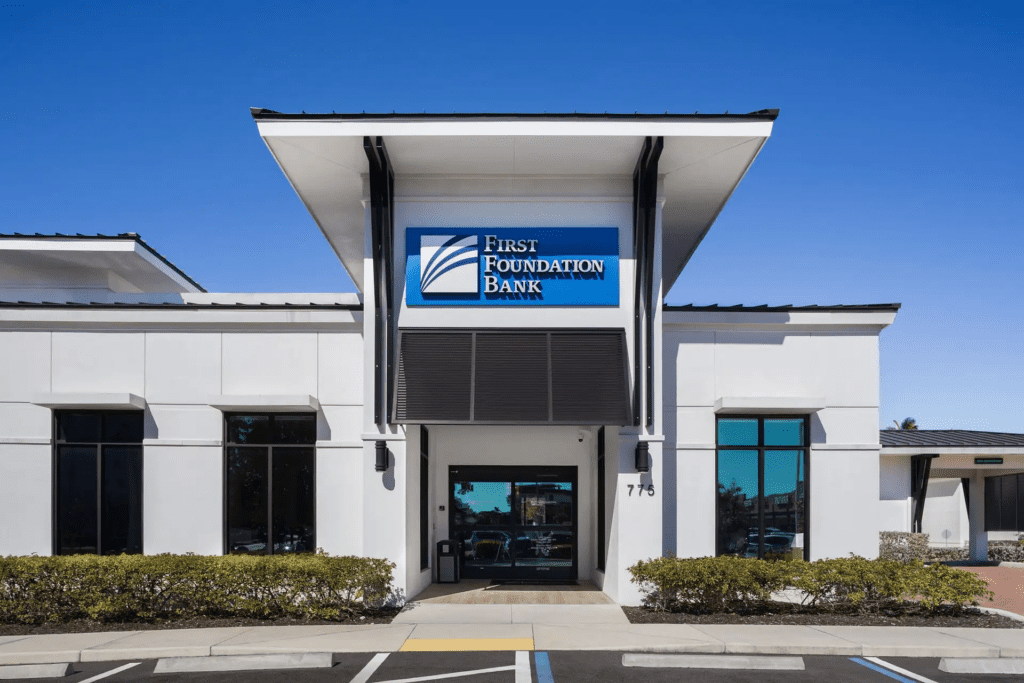
First Foundation Bank has teamed up with NYDIG to enable users to trade Bitcoin through the app, where customers can buy, sell, and hold Bitcoin. However, customers do not own specific on-chain Bitcoins but rather a particular amount and interest reflected in a personal NYDIG Bitcoin account. At the same time, NYDIG transfers all customer Bitcoin sales funds to the bank. The bank Bitcoin sales proceeds are deposited into the First Foundation Bank personal account of the user’s choice to complete the transaction.
Sutton Bank

Sutton Bank supports encryption services indirectly through CashApp and prepaid cards. However, according to the official statement, Sutton Bank is only the card issuer, and users can use CashApp to use the funds on the card. Still, any historical records of funds in the app cannot be queried through the online banking account. Sutton Bank does not undertake any customer support functions related to Robinhood’s debit card (Debit Card), and Robinhood sets up the card agreement entirely by itself.
Quontic Bank
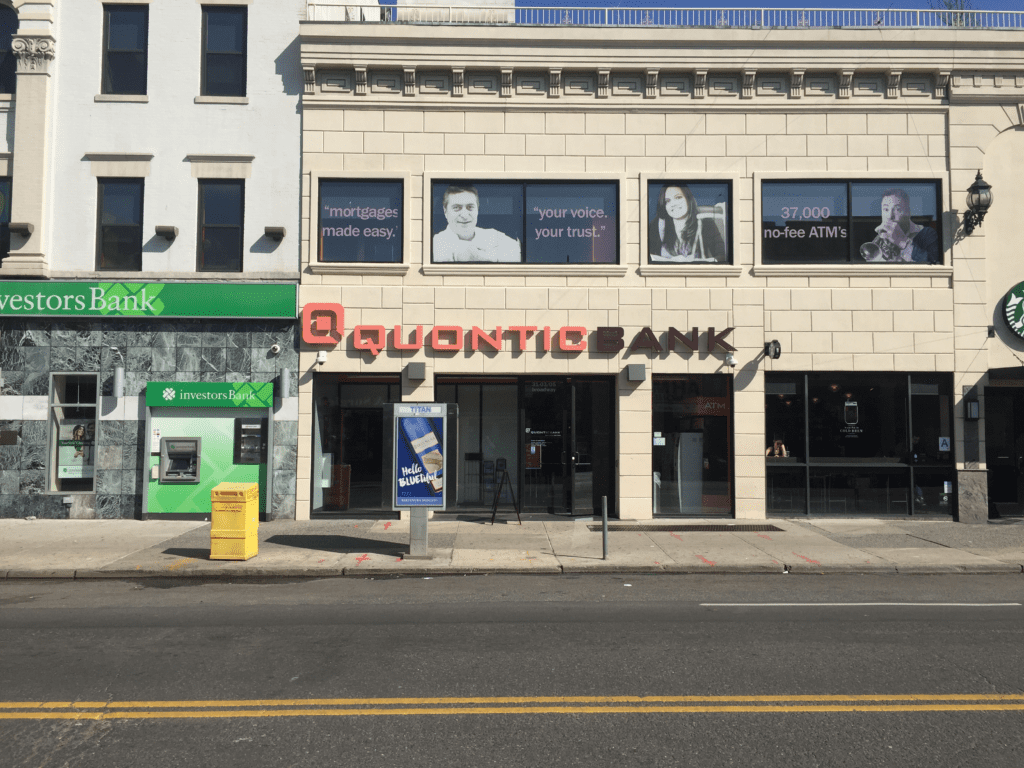
Quontic Bank uses Bitcoin as a rebate reward for swiping the full amount of the card. The user’s minimum deposit requirement is $500, and 1.5% of each consumption will be accumulated in USD-denominated Bitcoin as a reward. However, ATM withdrawals, transfers, bill payments, ACH payments, and wire transfers do not earn Bitcoin rewards.
Conclusion
The recent banking turmoil affected the US banking system and ripple effect on other regions’ banking systems. Due to regulatory policies, not all banks are able to provide US dollar services, but some banks have stepped up to fill the gap. Among them are major crypto-friendly banks in Europe, such as SEBA and Sygnum in Switzerland, as well as traditional large banks like Vontobel and Swissquote.
In addition, there are also smaller banks in European countries, including LHV Pank in Estonia, Gorenjska Banka in Slovenia, Bank Frick in Liechtenstein, and BlueOrange Bank in Latvia. Outlying island countries, such as Pacific Private Bank in Vanuatu, Deltec Bank, and Ansbacher in the Bahamas, have also emerged as options for crypto companies.
Overall, the US banking industry is undergoing a major transformation. In 2020, the OCC launched a payment charter that allowed crypto companies like Kraken/Paxos to enter the national financial system. However, regulatory policies have intervened in the banking system following the FTX incident and the collapse of three banks. Whether banks will once again embrace crypto companies in the future remains to be seen.
DISCLAIMER: The Information on this website is provided as general market commentary and does not constitute investment advice. We encourage you to do your own research before investing.
Join us to keep track of news: https://linktr.ee/coincu
Thana
Coincu News





















